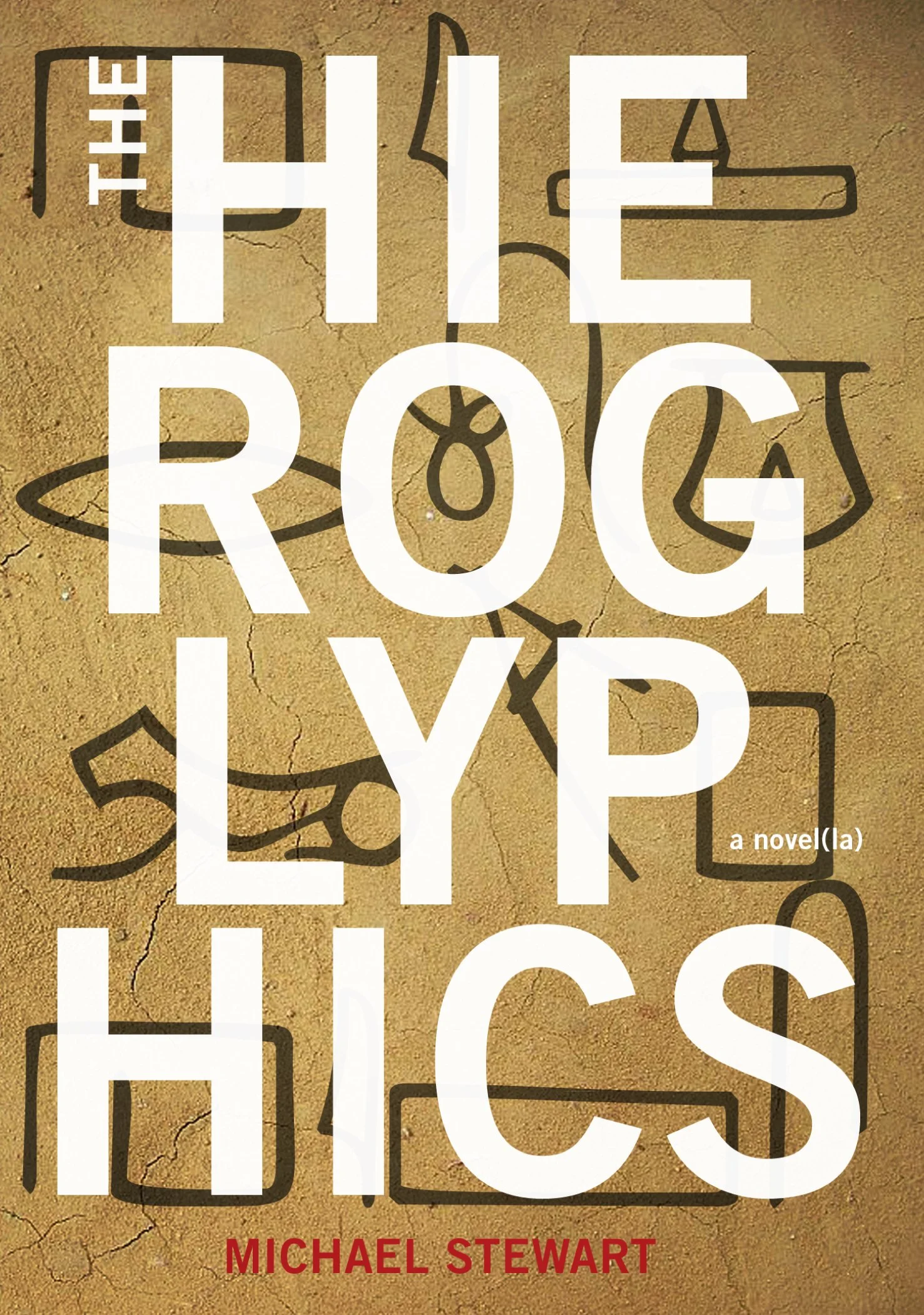PRAISE
"In THE HIEROGLYPHICS, a novel(la) in prose poems, Michael Stewart tackles nothing less than a radical revision of creation myths that comments darkly on the ancient stories we have received & the future we may be facing. Stewart's language is spare & haunting, the allusions resonating, in this work that 'reminds us how pale are the achievements of men'" - Wendy Barker.
Michael Stewart is currently the Rhode Island Council for the Arts Fellow in both Poetry and Fiction, as well as a lecturer at Brown. His list of independent press publications is extensive. His most recent work, The Hieroglyphics, a novella out from Mud Luscious Press is one of editor J.A. Tyler s strongest publishing choices. An emerging fiction writer himself, Tyler has a catalogue of several writers who seem destined for robust careers in poetry and literary fiction. Given this month s literal Egyptian uprising and revolution, The Hieroglyphics release comes at an interestingly opportune time, when many in the western world have turned their attention to the Near East. Coincidence only, serendipitous perhaps. Continuing the debate between translation in the literal and abstract sense, The Heiroglyphics is an interpretation of a previous work. An abundance of revisited manuscripts have been coming from independent presses this year, such as Christian Hawkey s Ventrakl, a take on the 1913 works of Austrian writer Georg Trakl. These works are not translated in the literal sense, but rewritten and translated in the interactive sense, or reinterpreted. It is thought that Horapollo Niliacus penned his version of The Hieroglyphics during the 4th century C.E., as translated by Boas (though some claim an unnamed court scribe as the manuscript s origin). Stewart opens the work to us with a note: Horapollo Niliacus, who most likely never existed, wrote the original Hieroglyphica. It was a collection of some 189 interpretations of the Egyptian hieroglyphics, which were entirely, & unintentionally, fallacious. What Stewart is able to do so beautifully is to give us a reinvention of each hieroglyph, a reinvention of one letter through many letters: 51. {Impudence} A man may invent many ways to sin. Just as through a forest a man may make many paths, so might a man invent many ways to sin. There is only one end, but the means may multiply. And: 58. {The Impossible} It is impossible for a man to give birth to himself or to lift his body from the ground. It is impossible for a man to stand on water like the firm ground. Impossible for a lion to speak other than with claws & teeth. The list of impossibilities is long & reminds us how pale are the achievements of men. The Hieroglyphics is an inquiry into the reinterpretation of interpretation. Symbolism standing, individualism usurping a mass voice, Tyler and Stewart can be thanked for bringing to light a manuscript which perhaps would have previously fallen into deeper obscurity, helping a dialogue on the reinvention of dialogue to stand a little longer. --Nicolle Elizabeth, The Brooklyn Rail
THIS BOOK IS AMAZING; from the very first sentence ( God is like a beast; he does not know time ) it is a brilliant, more-honest-than-myth-vaster-than-legend collection of pieces of removed yet laser-focused, wise, unknowable pieces that make up a whole as faithful to what humanity leaves behind as it is second cousin to history and even more important, universal mystery. --Christopher Newgent, Vouched Books
About the author
Michael Stewart is currently the Rhode Island Council for the Arts Fellow in both fiction & poetry. His work has appeared in a variety of journals & anthologies including Conjunctions, Denver Quarterly, & American Letters & Commentary. He is the author of A Brief Encyclopedia of Modern Magic (The Cupboard), Almost Perfect Forms (Ugly Duckling) & Sebastian, an illustrated book for adults (Hello Martha Press). He lectures at Brown University.


